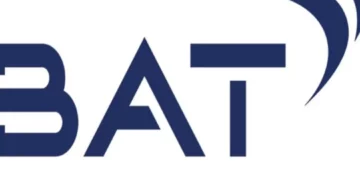The country was trapped in commodity dependence, a situation that was no longer sustainable for revenue generation to support its fiscal deficits. Nigeria’s dependence for revenue on oil was deep-rooted, leaving the non-oil sector, especially tax revenue potentials untapped. Despite the returns, the oil sector failed to make any change, hindering the success of Nigeria’s development aspirations. It was a tale of all motion, no movement.
The nation’s dependence on oil almost crippled its economy, catalyzing a negative GDP growth of 1.8 percent in 2020. The outbreak of Coronavirus pandemic of 2020 exposed the fragility of the oil economy further. Over 50 per cent of government revenue dependence was from oil. But almost 100 per cent of that revenue was still consumed by the hawkish design of the sector locally.
The COVID-19 pandemic and other global economic headwinds that characterized the foreign and domestic economies from 2020, including sharp declines in oil demand in 2020 left the government unable to meet its 2020 revenue projections. The federal government had to slash its budget by a more realistic 20 percent, reducing its benchmark price and production projections from $57 per barrel to $30, and anticipated production volumes from 2.2 million barrels per day (mbpd) to 1.7 mbpd consecutively to accommodate new realities. It was clear that Nigeria was in serious trouble, especially with an expanded fiscal deficit.
That happened until the current chairman of the Federal Inland Revenue Service, Mr Muhammad Nami and his team decided that the embarrassing situation must change and Nigeria must have a sustainable source of revenue generation for infrastructure development and reduce fiscal gaps.
To achieve that aim, the FIRS under Nami introduced mouthwatering initiatives – that were rather seen as over-ambitiousious then – to expand the tax net and boost tax revenue to support the federal and sub-national governments. Some of the initiatives include the deployment of the “TaxPro Max” as a tax administration solution as well as other technological tools for automation of tax administration processes, implementation of the 4-cardinal goals of the FIRS executive chairman: making FIRS a customer-centric institution, making FIRS a data-centric institution, improving stakeholder collaboration and rebuilding the institutional framework of the service.
2020 record
Indeed, that has yielded the desired result from 2020 to date. For instance, despite the economic and social-political headwinds of 2020 when the new initiatives were also introduced, FIRS generated N4.95 trillion a total tax revenue for the government, a record 98 per cent of the N5.076 trillion target for it. Many, including the former minister of finance, budget and national planning Zainab Ahmed commended the Nami-led FIRS performance which was considered remarkable, considering the devastating impact of COVID-19 on the Nigerian economy that year.
Additional tax exemptions granted to small businesses in the 2019 Finance Act and insecurity in some parts of the country were other factors that affected collections.
In the analysis of the significance of the 2020 performance, one would discover that the oil revenue which used to contribute over 50 percent in tax returns through the petroleum profits tax in previous years, accounted for only 30.6 percent of the tax revenue generated in 2020 due to low oil prices.
The non-oil tax collection, which was 109 percent in 2020, was nine percent higher than the previous year and attributed these achievements to many reforms initiated by the board and management of FIRS under his leadership.
Focus 2021
The situation got better in 2021 when the FIRS achieved 101 percent of the N6.405 trillion target for the revenue watchdog by posting a total revenue collection of N6.401 trillion. That was a major contribution to the financing of government expenditure.
The FIRS, in the year 2021 collected a total of N6.405 trillion in both oil (N2.008 trillion) and non-oil (N4.396 trillion) revenues as against a target of N6.401 trillion. Companies Income Tax amounted to N1.896 trillion; petroleum profits tax amounted to N2 trillion; Value Added Tax amounted to N2.07 trillion; electronic money transfer levy amounted to N114 billion; earmarked taxes amounted to N208.8 billion; among others.
The non-oil sector contributed 68.64 percent of the total collection in the year, while the oil sector’s contribution was 31.36 percent of the total collection.
The Service issued certificates for the sum of N147.8 billion tax credit to private investors and NNPC for road infrastructure under the road infrastructure development refurbishment investment tax credit scheme created by Executive Order No. 007 of 2019.
2022 jottings
It was again, a point of relief for the authorities when FIRS announced that it collected over N10.1 trillion in tax revenue in the year 2022, the highest tax collection ever recorded in its history. The total revenue collection includes both oil (N4.09 trillion) and non-oil (N5.96 trillion) tax collections as against a target of N10.44 trillion.
A detailed analysis of the 2021 figures showed that companies’ income tax contributed N2.83 trillion; Value Added Tax N2.51 trillion; electronic money transfer levy N125.67 billion and earmarked taxes N353.69 billion. Non-oil taxes contributed 59 percent of the total collection in the year, while oil tax collection stood at 41 percent of the total collection.
The report also stated that the N10.1 trillion is exclusive of tax waived on account of various tax incentives granted under the respective laws, which amounted to N1,805,040,163,008 billion.
The performance update report further clarified that included in the total revenue sum is the sum of N146.27 billion which is the total value of certificates issued by the service to private investors and NNPC for road infrastructure under the road infrastructure development refurbishment investment tax credit scheme created by Executive Order No. 007 of 2019.
Of course, Mr. Nami rekindled the hope of many when he promised in 2022 that FIRS was going ahead to build on the current reforms, achieve full automation and continue to establish a resilient Service that would continue to provide sustainable tax revenue to fund the government.
2023 in view
That is making the expected impact already according to official figures of the service on revenue performance for the first half of 2023. The FIRS announced an impressive total tax revenue collection of N5.5 trillion for the first half of January to June 2023. This figure represents the highest tax revenue ever recorded by the service in any six months of a fiscal year.
During the presentation of the 2023-2024 tax revenue outlook to the National Economic Council at the Presidential Villa in Abuja on Thursday, July 20, 2023, the chairman of FIRS, Mr. Muhammad Nami, disclosed these remarkable results. The report showcased the service’s exceptional performance, as it achieved over 100 percent of its target for the first half of the year, surpassing a mid-year target of N5.3 trillion.
In the report, it was revealed that tax revenue collected from the oil sector from January to June 2023 amounted to N2.03 trillion, slightly below the target of N2.3 trillion. Meanwhile, non-oil tax collection reached N3.76 trillion, exceeding the target of N2.98 trillion.
Mr. Nami highlighted that the Service collected a staggering N1.65 trillion in tax revenues in June 2023, marking the highest tax revenue ever collected in a single month.
The exceptional performance was credited to improved voluntary tax compliance, facilitated by the automation of FIRS’ tax administrative processes. Mr. Nami also acknowledged the challenging economic conditions faced during the first and second quarters of 2023 due to the currency redesign and the 2023 general elections.
For ardent followers of the FIRS under the present administration, the performance is expected. The reason they adduce to such an expectation is hinged on the template already set by Nami and his team. The team has prioritized improvement in stakeholder engagements while ensuring the taxpayer is satisfied. Some of the key tax implementation tools of the FIRS include the issuance of circulars to guide and educate taxpayers on tax laws, legislations, how to file, filing returns; enlightenment of taxpayers on their rights and obligations, redesigning the FIRS organizational structure to ensure optimum efficiency of staff, constant training and retraining of FIRS staff to improve their capacity, use of data and intelligence for tax collection and taxpayer profiling; building a comprehensive tax database and consistent stakeholder engagement in both the formal and informal sectors.





